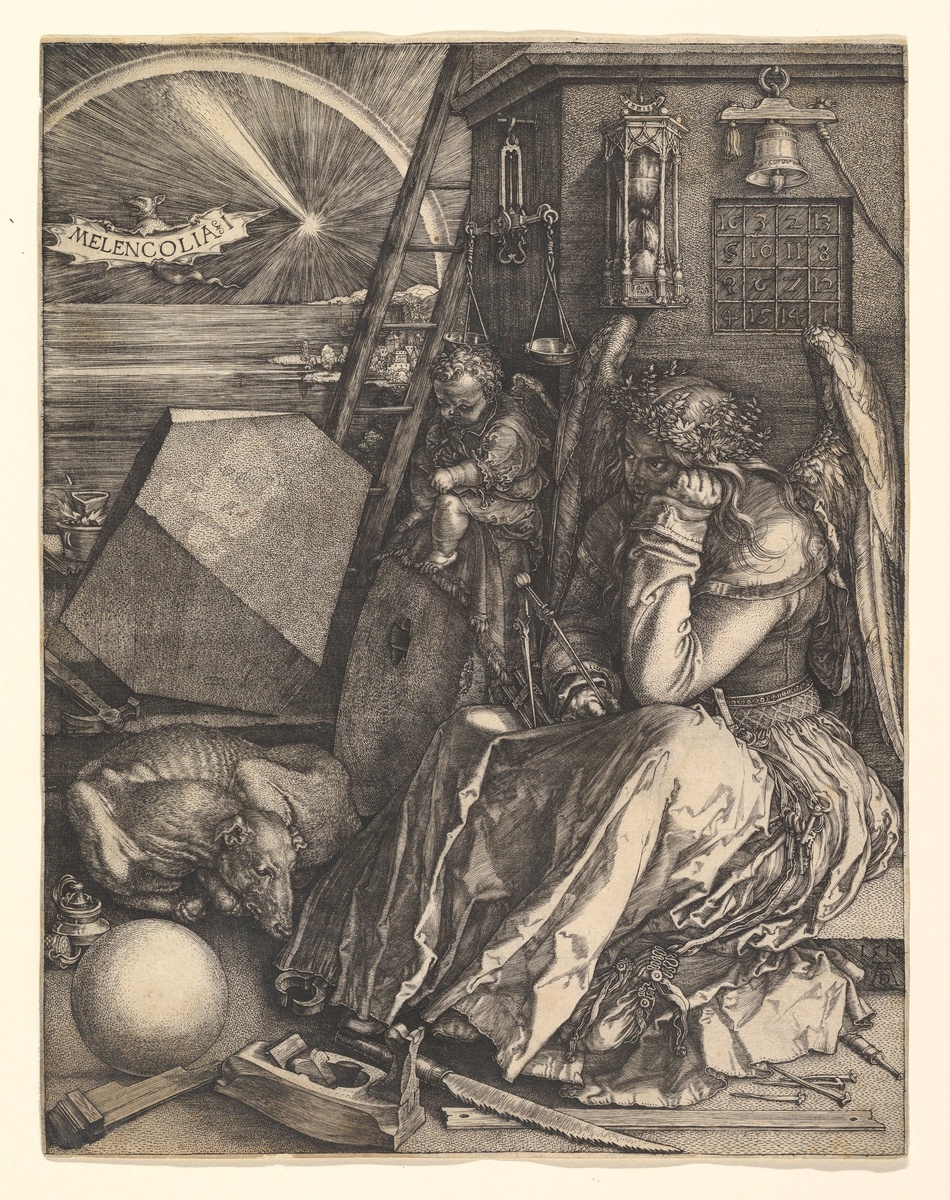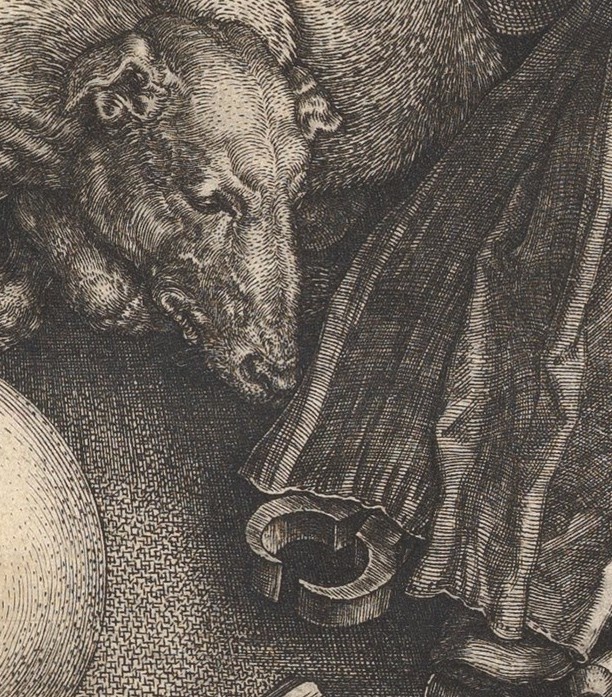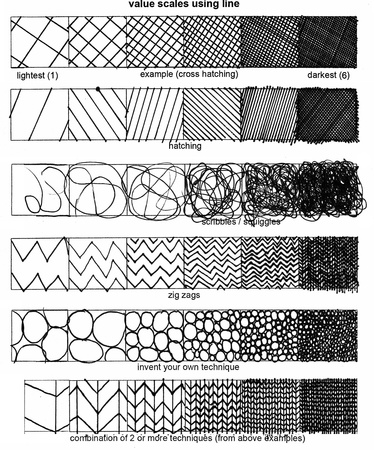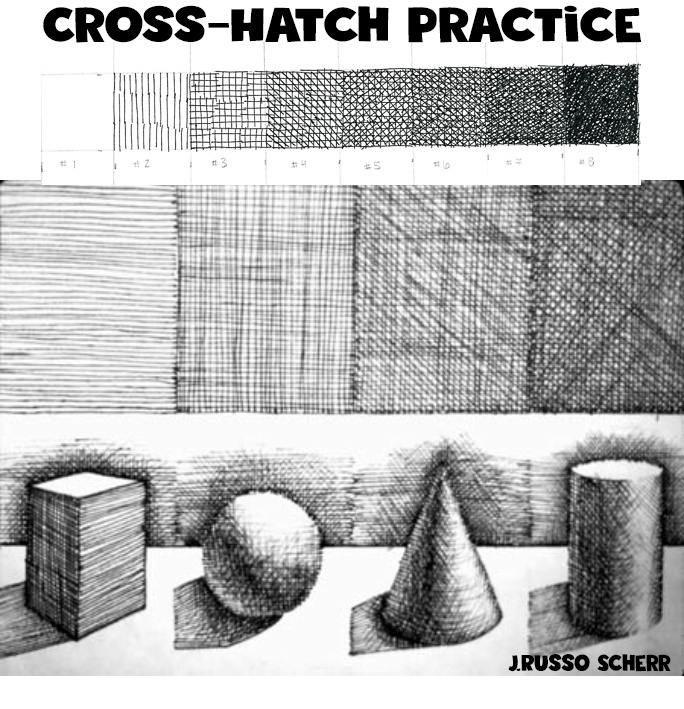
Hatching & Cross-Hatch Basics
Hatching and cross-hatching are drawing techniques that can be used to create texture, value, and the illusion of form (chiaroscuro).
- Watch this video to learn how artists have used cross-hatching to create Tone/Value
Art Historical Sources: Albrecht Dürer
Dürer's Melencolia I is one of three large prints of 1513 and 1514 known as his Meisterstiche (master engravings).

Detail
See how he uses a variety of mark making, hatching, cross hatching in a controlled manner with lights and darks.

Value Scale
The lightest value being white and the darkest value being black.
Note: Not all drawings need to use the full value scale but using this scale will help you create more depth and space.
Tone is the degree of intensity/strength of a color. A pure lemon yellow has a high tone, while browns have low tones. Value describes the relative lightness and darkness of color.
Practice Mark Making with Value
- Look at the value scales using line in the example below
- Create 6 Rows across in your sketchbook.
- Divide each row into 6 so you have 6 squares per row.
- Experiment with mark-making and value scales. Start off with light values on the left and gradually work toward the darker values on the right.

Cross Hatch Practice
- In your sketchbook, practice applying crosshatch and chiaroscuro together by creating basic shapes.
- Draw a rectangle form, sphere, cone, and a cylinder (like in the example below)
- Aim for clean and organized hatching lines that curve around the form. These are called contour lines.
